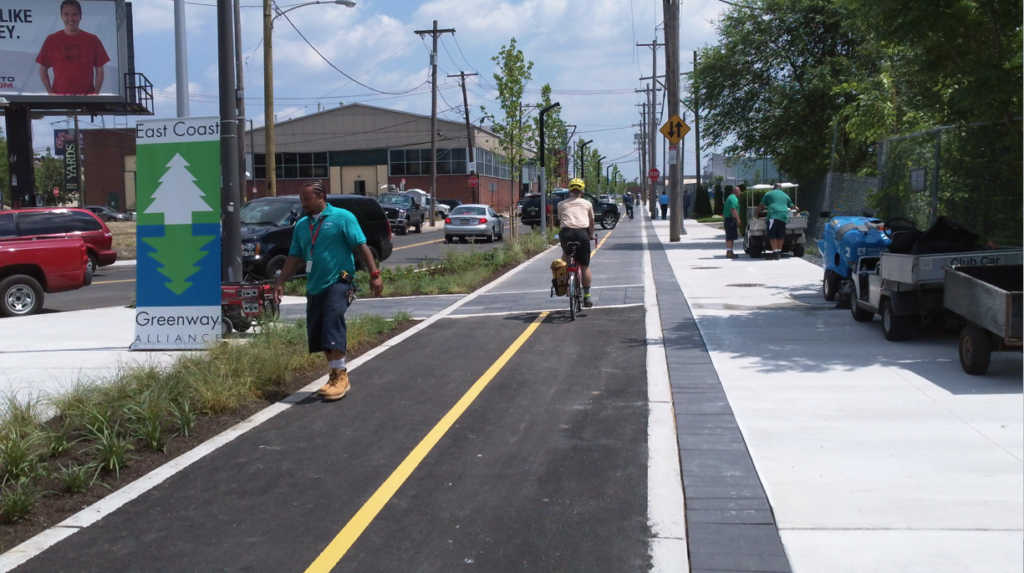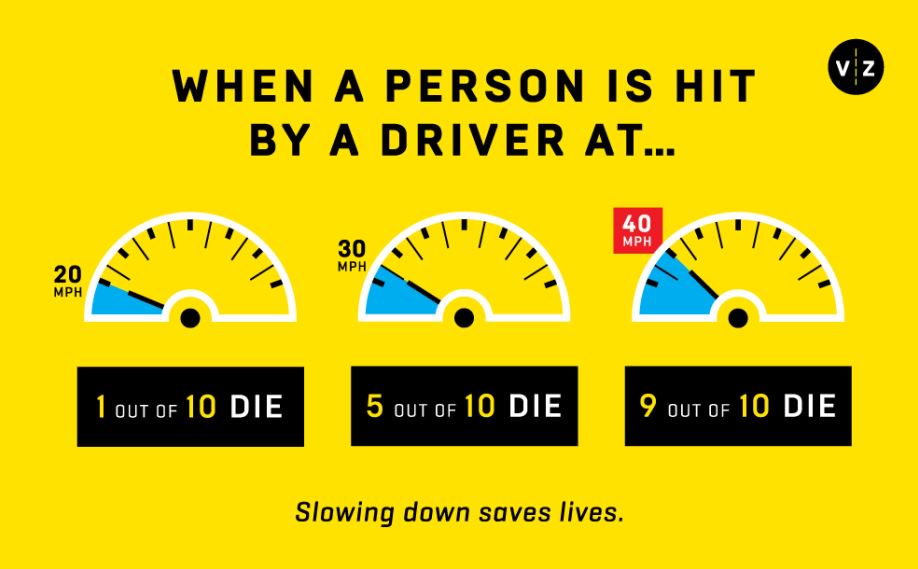
Less than a week after the Bicycle Coalition of Greater Philadelphia’s third Vision Zero 2017 Conference, the City of Philadelphia released its first-ever Vision Zero Draft Action Plan on Tuesday, March 7, outlining a plan to eliminate traffic deaths by 2030.
The Action Plan makes several recommendations for which the Bicycle Coalition of Greater Philadelphia and Vision Zero Alliance have been advocating.
The Bicycle Coalition proposed the Complete Streets Office (which Mayor Kenney created by Executive Order in November 2016), the Vision Zero Task Force (also created by Executive Order), and has advocated for the adoption of a hard target date for zero traffic deaths since our 2015 Better Mobility mayoral forum, and then-Mayoral Candidate Jim Kenney agreed to pursue Vision Zero at that time.
This new action plan from the city includes several encouraging, and true, statistics are important that the city is prominently recognizing: Mainly, that speed kills, slower speeds on city streets saves lives, bicyclists need to be prioritizes for our city in the future, and a new focus on safer neighborhoods needs to be prioritized.

A visual from the city’s Vision Zero Draft Action Plan
Full disclosure: Bicycle Coalition Executive Director Sarah Clark Stuart was picked to sit on the Vision Zero Task Force, but left due to a conflict of interest: We are applying for a Safe Routes Philly contract, which is, in part, funded by the City of Philadelphia.
Among the positive aspects in the Action Plan, which is available here, are the city’s recommendations for further investments in red light cameras (read about the recent history of red light cameras in Pennsylvania here, and how we helped get the bill extended), working for new speed cameras, and new bike lanes around the city’s neighborhoods.
The city has pointed out an internal plan to operate its own vehicles safely and by example, specifically pointing out SEPTA, PPA and Indego Bike Share vehicles, as well as taxis, which the city regulates. How do they plan to do it? By incorporating “new technology, and generally improve safety operations of fleet operators and vehicles.”
Philadelphia will see its first two bicycle signals, a network of protected bike lanes, two major pedestrian intersection improvements every two years, 150 new LED street lights in three years, new pedestrian countdown timers at 13 intersections a year. It also recommends seeking state approval for more red light cameras on Roosevelt Boulevard, and a similar technology to be installed on school buses’ stop sign arms.
All good things! The Bicycle Coalition of Greater Philadelphia has advocated for new protected bike lanes throughout the city, helped the state pass an extension to the red light camera bill last year, and intersection improvements. When the plan is final done at the end of the summer, we hope to see the city use some of the resources we’ve provided to figure out which streets need the most help, and when.
The Bicycle Coalition of Greater Philadelphia recently released our Hub and Spoke plan, available here, which prioritizes problem streets around, and into, Center City, which we believe will double the percentage of cyclists in Center City and create new cyclists around the city through safe infrastructure.

Additionally, it should be said that this is a thorough start for the city’s Vision Zero plan, and for new Complete Streets Director Kelley Yemen. The draft plan was put out on time – with the 120 days the mayor gave the Task Force to complete it when he signed the order – and is as specific as they city can get as far as what kinds of improvements are needed.
We now have a lot of information on what the city hopes to see in its neighborhoods, and they’ve created a document that will keep themselves accountable. It gives accountability to street design and programs, and is something we can now use to track progress.
We believe that as the action plan gets updated and revised, the City can work toward identifying specific problem corridors for safety improvements and recommend specific streets for higher quality bike lanes.
The City is asking the public to provide comments on this draft plan and the Bicycle Coalition of Greater Philadelphia will provide comments in the coming weeks. We invite members of the public to do so as well by submitting comments here.
